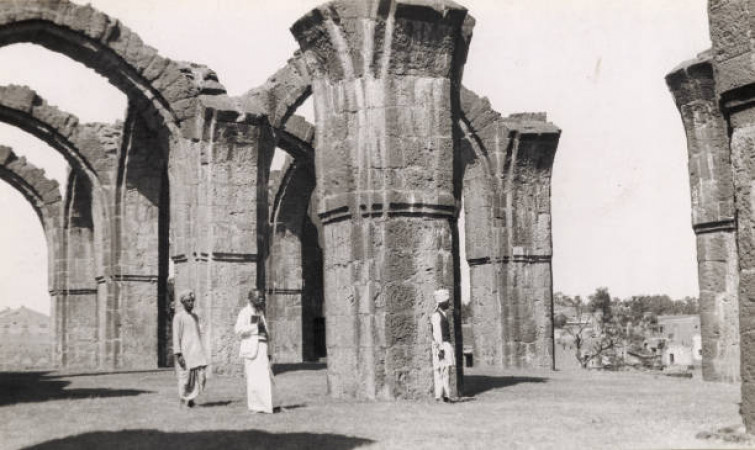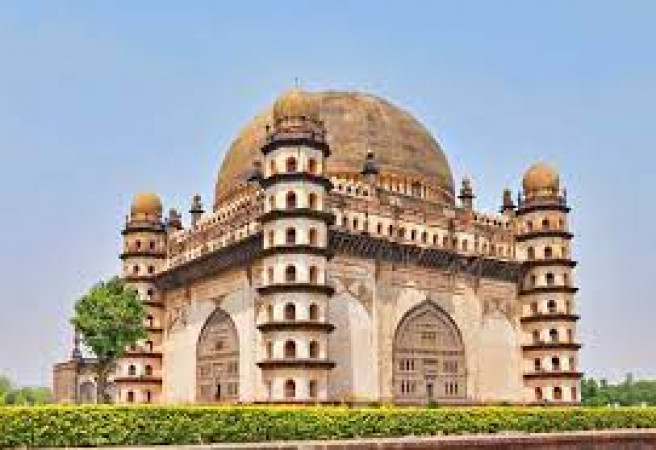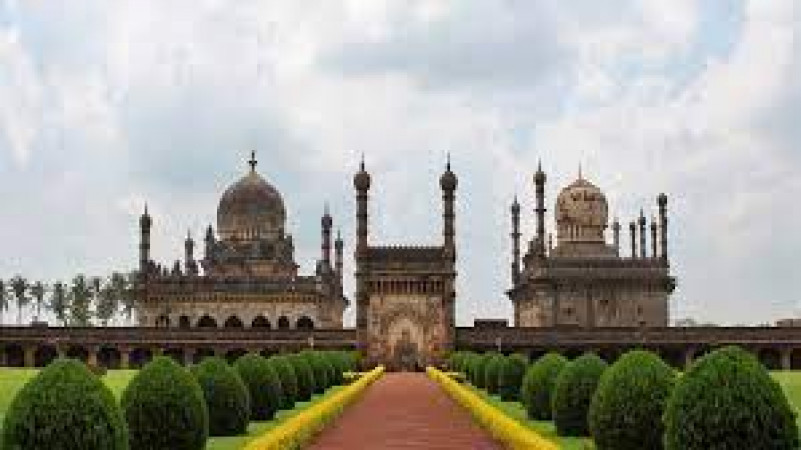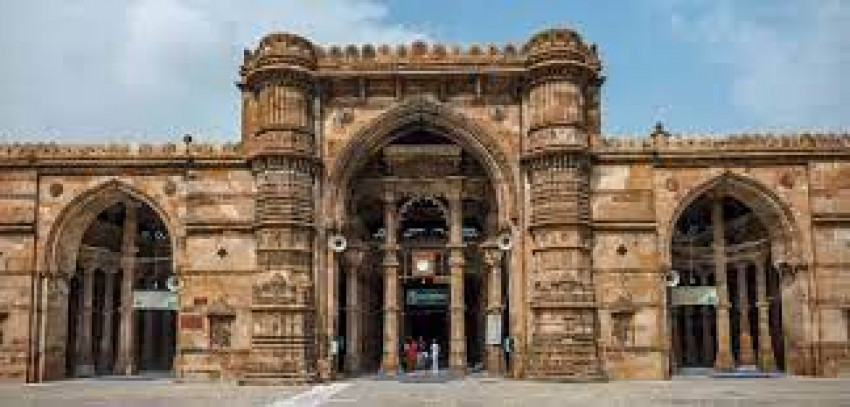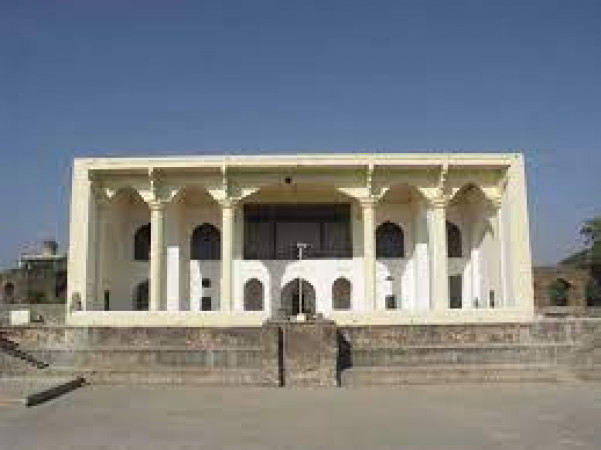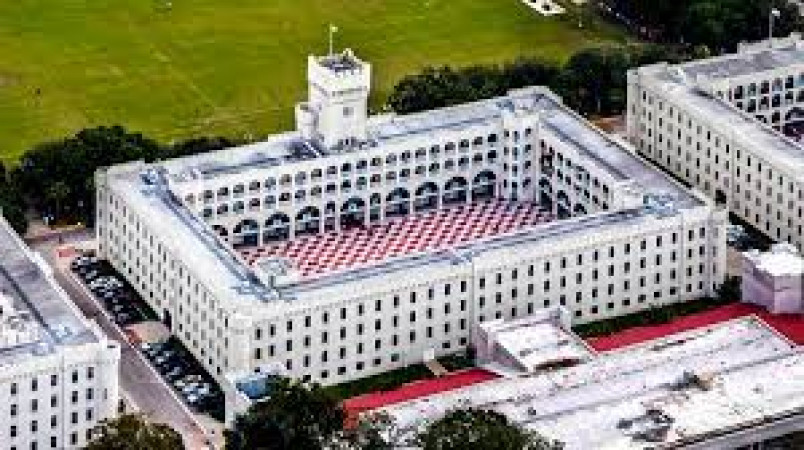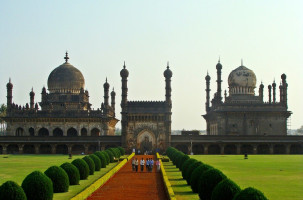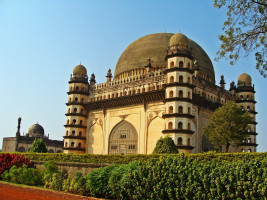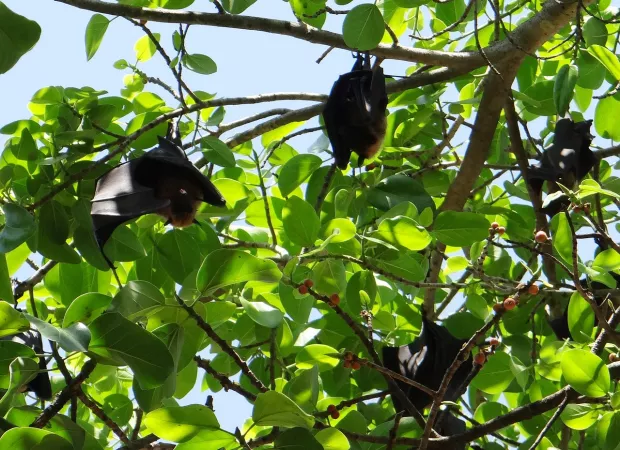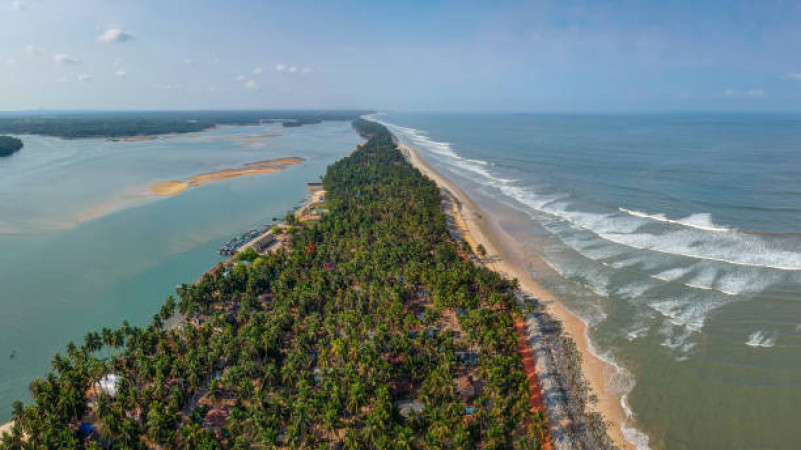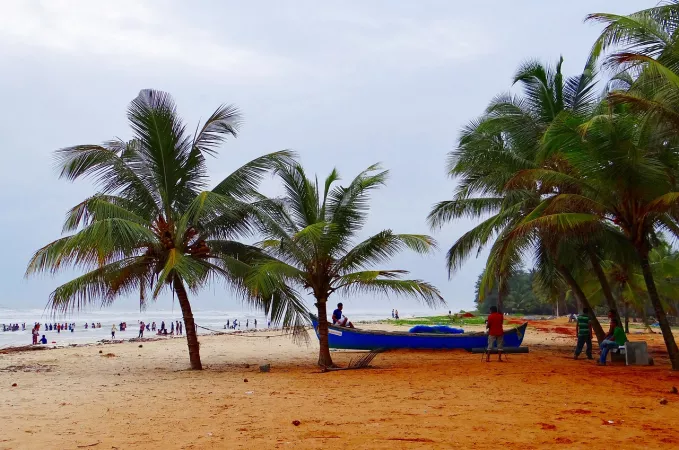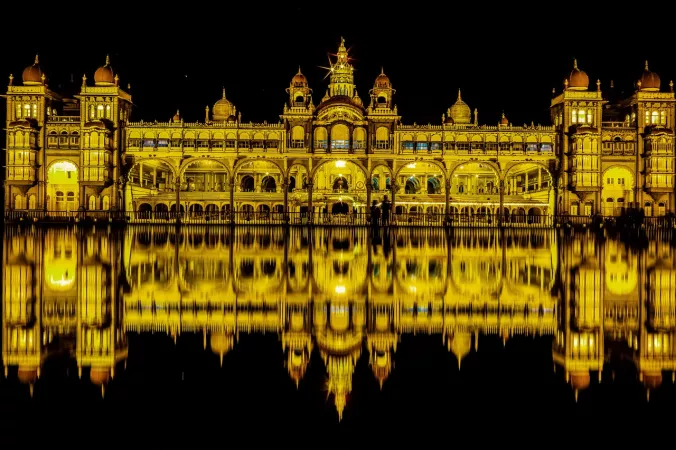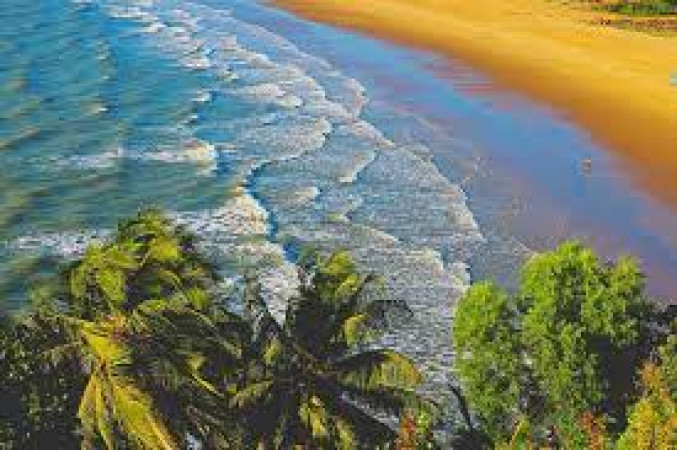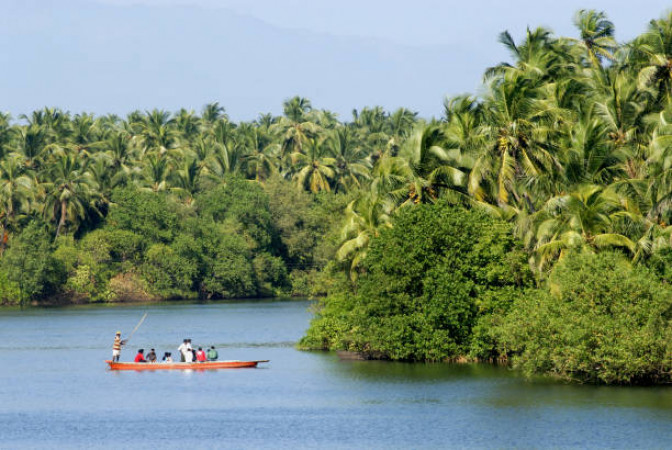Bijapur Travel Guide
Bijapur, located in the state of Karnataka, India, is a historical city known for its architectural wonders and rich cultural heritage. It was the capital of the Adil Shahi dynasty and is famous for its magnificent monuments, mosques, and mausoleums that showcase the Indo-Islamic style of architecture. The city's historical significance and stunning landmarks make it a popular destination for history buffs and architecture enthusiasts.Top Attractions in Bijapur
- Gol Gumbaz
- Ibrahim Rauza
- Jama Masjid
- Malik-e-Maidan
- Bara Kaman
Bijapur is Famous for
Bijapur is famous for its architectural marvels, especially the Gol Gumbaz, which houses the second-largest dome in the world.Top Attractions in Bijapur
- Exploring the grandeur of Gol Gumbaz
- Visiting the exquisite Ibrahim Rauza
- Admiring the intricate carvings at Jama Masjid
- Viewing the massive cannon at Malik-e-Maidan
- Strolling through the incomplete mausoleum of Bara Kaman
What's Great about Travelling to Bijapur?
- Experience the grandeur of Islamic architecture
- Immerse yourself in the rich history of the Adil Shahi dynasty
- Explore unique and lesser-known historical sites
What's Not So Great about Travelling to Bijapur?
- Limited options for nightlife and entertainment
- Hot and humid weather during summers
- Lack of modern amenities in some areas
Travel Tips for Bijapur
- Carry sufficient cash as ATMs may be limited
- Dress modestly while visiting religious sites
- Book accommodations in advance, especially during peak tourist season
Important Bijapur trip information
- Ideal Duration: 2-3 days
- Best Time to Visit: November to February for pleasant weather
- Nearby Airports and Railway Stations: Belgaum Airport and Bijapur Railway Station
Top 5 Places to visit in Bijapur
Per Person
17,038
*EXCLUDING APPLICABLE TAXES 4.9 Ratings
( 200 Reviews )
( 200 Reviews )
Per Person
23,015
*EXCLUDING APPLICABLE TAXES 4.9 Ratings
( 200 Reviews )
( 200 Reviews )
FAQ's on Bijapur
Q1: What is the best time to visit Bijapur?
The best time to visit Bijapur is during the winter months from November to February when the weather is pleasant and ideal for exploring the historical sites. Avoid the summer months from March to June, as it can get extremely hot. The monsoon season from July to September brings heavy rainfall, which may hinder sightseeing activities. Consider visiting during the shoulder seasons of October and March for fewer crowds and comfortable temperatures.
Q2: Do I need a visa to travel to Bijapur?
Most tourists visiting Bijapur will need a valid visa. Check with the Indian embassy or consulate in your country for specific visa requirements. Some nationalities may be eligible for e-visas or visa on arrival, but it is advisable to check the latest information before traveling. Ensure that your passport is valid for at least six months beyond your intended stay in India to avoid any issues with entry.
Q3: What are the must-visit attractions in Bijapur?
Bijapur is known for its stunning architectural heritage, with attractions like the Gol Gumbaz, Ibrahim Rauza, Jami Masjid, and Bara Kaman being must-visit sites. Explore the intricate carvings and grand structures of these historical monuments. Don't miss the Malik-e-Maidan, the largest medieval cannon in the world, and the beautiful gardens of the Taj Bawdi. Immerse yourself in the rich history and culture of Bijapur by visiting these iconic landmarks.
Q4: Is Bijapur a safe place to travel?
Bijapur is generally a safe destination for tourists, but like any other place, it's essential to take precautions. Avoid isolated areas, especially at night, and be cautious of pickpockets in crowded places. Respect local customs and dress modestly to avoid unwanted attention. It's advisable to travel with a guide or in a group when exploring remote areas. Stay informed about any travel advisories and be vigilant during your stay in Bijapur.
Q5: What is the local currency in Bijapur and can I use credit cards?
The official currency of India is the Indian Rupee (INR). ATMs are widely available in Bijapur, especially in urban areas, allowing you to withdraw cash easily. While credit cards are accepted in some hotels, restaurants, and larger stores, it's advisable to carry cash for smaller purchases and in markets. Inform your bank of your travel plans to prevent your cards from being blocked for suspicious activity. Currency exchange services are also available for foreign visitors.
Q6: What is the local cuisine like in Bijapur?
Bijapur offers a diverse culinary experience with a blend of South Indian, North Indian, and Mughlai influences. Enjoy traditional dishes like Biryani, Jolada Rotti, and Jhunka, which are popular local favorites. Don't miss the opportunity to savor the unique flavors of Dharwad Peda, a famous sweet treat that originated in this region. Vegetarian options are widely available, and you can indulge in spicy curries, chutneys, and street food delights. Embrace the local cuisine and explore the vibrant food scene in Bijapur during your visit.
Q7: What transportation options are available in Bijapur?
Getting around Bijapur is convenient with various transportation options. Auto-rickshaws and cycle rickshaws are popular for short distances and offer a unique way to explore the city. Taxis can be hired for longer journeys or day trips to nearby attractions. Public buses are also available for budget travelers, providing connectivity to different parts of the city. If you prefer more flexibility, consider renting a car or a motorcycle to navigate Bijapur at your own pace. Plan your transportation in advance to make the most of your trip and ensure a smooth travel experience.
Q8: Are there any cultural norms or etiquette I should be aware of when visiting Bijapur?
When visiting Bijapur, it's important to respect the local customs and traditions. Dress modestly, especially when visiting religious sites, and remove your shoes before entering temples or mosques. Greet people with a "Namaste" or "Salaam" and be mindful of cultural sensitivities. Avoid public displays of affection and ask for permission before taking photographs of locals. It's customary to eat with your right hand in India, so try to follow this practice during meals. Embrace the warmth and hospitality of the local people and engage with them respectfully to enhance your cultural experience in Bijapur.
Q9: I am a travel agent. How can I buy travel leads of Bijapur?
Register yourself as a travel agent at agents.tripclap.com and then you can buy travel leads to Bijapur once your account is approved. For more details contact our support team at +91-8069186564 or support@tripclap.com
